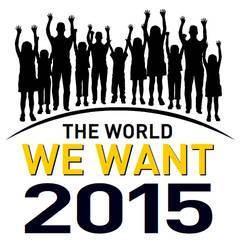
The United Nations recently published a report of the High-Level Panel on the post-2015 development agenda. The 27-member panel is composed of leaders from civil society, the private sector, and government – including Betty Maina, the Chief Executive of the Kenya Association of Manufacturers (KAM), one of the country’s leading business associations and a long-time CIPE partner.
The panel’s finding were based on extensive consultations with more than 5,000 civil society organizations in about 120 countries and CEOs of 250 companies in 30 countries with annual revenues exceeding $8 trillion, as well as academics from developed and developing countries, international and local NGOs, and parliamentarians.
The report concludes that the post-2015 agenda for the international community to agree upon before the expiry of the Millennium Development Goals (MDGs) needs to be driven by five big, transformative shifts:
- Leave No One Behind
- Put Sustainable Development at the Core
- Transform Economies for Jobs and Inclusive Growth
- Build Peace and Effective, Open and Accountable Public Institutions
- Forge a new Global Partnership
In a recent blog post, Karol Boudreaux, Director for Investments at the Omidyar Network, references this report and rightfully notes that property rights are key to achieving MDGs – in particular the first two: ending poverty and empowering girls and women – and therefore crucial to the success of these larger post-2015 goals as well. She says, “new attention is focused on encouraging bottom-up, participatory efforts that recognize and formalize the legitimate rights that individuals (including women and girls), communities and businesses hold to a variety of resources.” That matters tremendously because the poor – both informal urban entrepreneurs and small farmers – are the largest group of business people in the world.
The fact that improving access to, and protection of, property rights translates into greater productivity and better development outcomes is not news. It is intuitive and logical that people who feel secure in their property rights, whether as owners or tenants, are more likely to make long-term investments and use the fungibility of land that Hernando de Soto talked about in The Mystery of Capital to use it not just for housing or farming but also as a source of capital for other business ventures. The UN report affirms that but also points to a challenge: “We know property rights are important, but also realize the challenges of measurement. We urge further work on this issue.”
CIPE is currently tackling the measurement challenge in its work on improving property rights and access to credit for SMEs. In cooperation with the International Real Property Foundation, CIPE designed the International Property Markets Scorecard methodology that maps out the core elements of well-functioning property markets and uses a mix of desk and field research to assess the health of each component for a given country.
Partnering with local organizations in Armenia, China, Kenya, and the Philippines, CIPE drafted the scorecards for these countries that identified reform priorities in each. The work now continues, focused on researching the priority issues in more depth and advocating for reform in areas ranging from better coordination between government agencies dealing with property transactions and access to credit, to more secure tenancy for small urban entrepreneurs.
Aside from country-specific findings and initiatives, the Scorecard makes a bigger point. It clearly illustrates the institutional interconnections between the core elements of sound property markets: property rights, access to credit, effective governance, rational dispute resolution, financial transparency, and appropriate regulation.
The UN High Level Panel’s report takes a similar views and notes that development more broadly depends on building effective, open and accountable public institutions: “We are calling for a fundamental shift – to recognize peace and good governance as core elements of wellbeing, not optional extras. This is a universal agenda, for all countries. Responsive and legitimate institutions should encourage the rule of law, property rights, freedom of speech and the media, open political choice, access to justice, and accountable government and public institutions.”
Such a fundamental shift, in the area of property rights or any other, is not a matter of prescribing a universal recipe for passing a particular set of laws or changing select administrative procedures. Instead, it can only be achieved through grassroots engagement of various civil society organizations – from business associations, through NGOs focused on transparency and good governance, to economic think tanks – who can tackle different pieces of the reform agenda unique to their country’s situation. We have the global consensus of distinguished thought leaders on what the broad agenda for development should look like going forward. Now is the time to put these principles into action.
Anna Nadgrodkiewicz is Senior Program Officer for Global Programs at CIPE.

